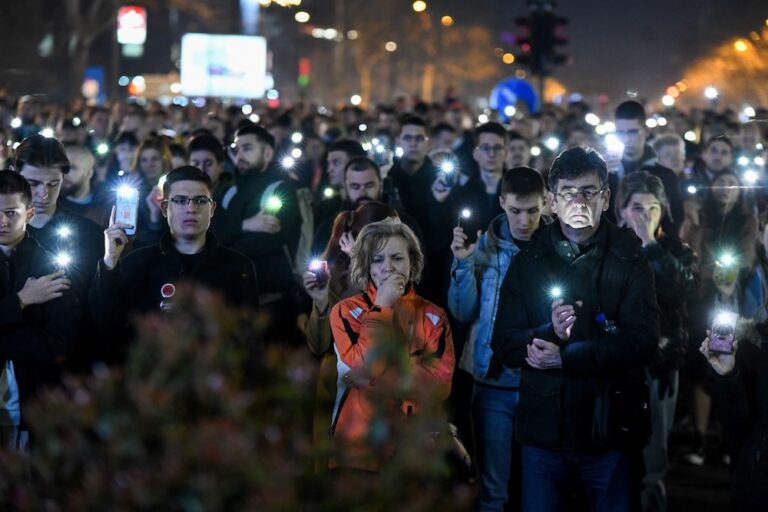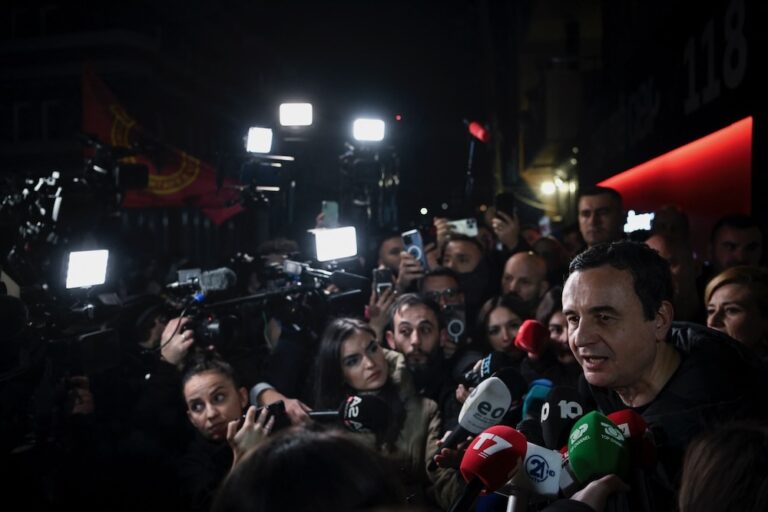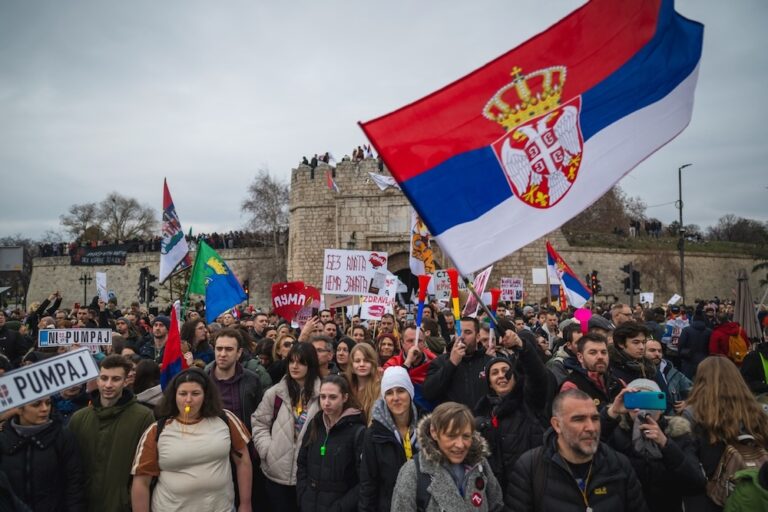(RSF/IFEX) – On the sixth anniversary of the11 April 1999 murder of Serbian journalist Slavko Curuvija, RSF deplored the failure to identify his killers and bring them to justice and reiterated its call to the Serbian authorities to establish all the facts related to the case. “No relevant information is yet available about Slavko Curuvija’s […]
(RSF/IFEX) – On the sixth anniversary of the11 April 1999 murder of Serbian journalist Slavko Curuvija, RSF deplored the failure to identify his killers and bring them to justice and reiterated its call to the Serbian authorities to establish all the facts related to the case.
“No relevant information is yet available about Slavko Curuvija’s killers,” the organisation said in a letter to the interior minister. “We are dismayed by the lack of results and the failure of the Serbian authorities to carry out an investigation capable of finding out the truth about this case.”
The letter continued, “Despite repeated promises to solve this case, it is clear that the investigations are at a standstill. Curuvija’s family and his colleagues in Serbia and the rest of the world have a right to know the truth. We once again call on the authorities to do everything possible to clarify all the precise circumstances of this tragedy.”
On 11 April 2005, Justice Minister Zoran Stojkovic said there was no real evidence available on the circumstances of Curuvija’s death, despite the creation of a Special Investigations Unit within the police force to work on the case. According to sources within the Interior Ministry, Police Inspector General Vladimir Bozovic requested documents about the Curuvija case in September 2004, but obtained nothing from the police then in charge of the investigation.
On 9 December 2003, a few days before legislative elections, the Office of the Special Prosecutor and the organised crime bureau said an eye-witness had formally identified two persons suspected of the murder but their identity could not be revealed. Since then, the police have given no further information about the outcome of this identification. The daily newspaper “Politika” has alleged that three policemen from the Republic of Srpska (a Bosnian Serb entity) are implicated in Curuvija’s death, and that Luka Pejovic, a Montenegrin who was identified as Curuvija’s killer by a witness, was innocent. Pejovic was gunned down outside his Belgrade home on 5 December 2000.
According to Natasa Kandic of the Humanitarian Law Centre (HLC), a Serbian human rights NGO that was the first to discover that Curuvija was under close police surveillance at the time of his murder, those implicated in his death still have a close relationship with the Serbian national security agencies and this may explain why the investigation has not progressed.
Curuvija, who edited the newspapers “Dnevni Telegraf” and “Evropljanin”, was shot dead by two masked men in front of his Belgrade home on 11 April 1999, during the NATO military offensive. Curuvija was returning home with his wife at the time of the shooting. He had been repeatedly harassed for his articles critical of the regime of President Slobodan Milosevic and various state-owned newspapers had called him a “traitor”.


